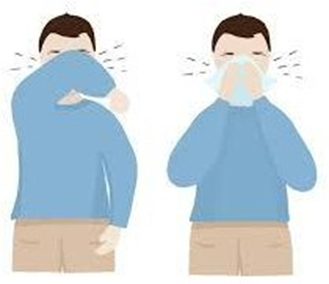A nurse is providing discharge teaching about disease prevention to a client who has active tuberculosis. Which of the following should the nurse include?
Educating the client how to cover nose and mouth with tissues when coughing
Recommending the client may return to work after two negative sputum cultures
Instructing the client that he is no longer contagious after 1 week of medication therapy
Teaching the client's family to wear protective masks while with the client
The Correct Answer is A
A.
A. Educating the client on covering the nose and mouth with tissues when coughing helps prevent the spread of tuberculosis by containing respiratory secretions.
B. A client with active tuberculosis should not return to work until they have completed a sufficient duration of treatment and are deemed non-infectious, not solely based on negative sputum cultures.
C. The client remains contagious until they have been on appropriate medication therapy for a sufficient duration and are deemed non-infectious by healthcare providers, usually after several weeks of treatment rather than just one week.
D. While wearing protective masks may be recommended for healthcare workers or individuals with compromised immune systems, it's not necessary for the client's family members unless they are in close contact with the client for an extended period.

Nursing Test Bank
Naxlex Comprehensive Predictor Exams
Related Questions
Correct Answer is D
Explanation
A. A metallic taste in the mouth is a common side effect of the contrast dye used in IV urography procedures and is not typically a cause for concern.
B. Abdominal fullness may occur due to the administration of fluids during the procedure and is not usually a priority finding unless it persists or is severe.
C. Feeling flushed and warm may be a transient reaction to the contrast dye and does not typically require immediate intervention unless accompanied by other symptoms.
D. Swollen lips could indicate an allergic reaction to the contrast dye, which can progress rapidly and potentially lead to a severe reaction such as anaphylaxis. This is the priority finding requiring immediate attention.
Correct Answer is {"xRanges":[141.765625,171.765625],"yRanges":[127.609375,157.609375]}
Explanation
A. To best hear the closing of the aortic heart valve, the nurse should place the diaphragm of the stethoscope at the second intercostal space, right sternal border. This is also known as the aortic area.
B. This is the tricuspid region, and defects with the tricuspid valve will be best heard in this area.
C. This is the mitral region and murmurs due to defects in the mitral valve will be appreciated here
Whether you are a student looking to ace your exams or a practicing nurse seeking to enhance your expertise , our nursing education contents will empower you with the confidence and competence to make a difference in the lives of patients and become a respected leader in the healthcare field.
Visit Naxlex, invest in your future and unlock endless possibilities with our unparalleled nursing education contents today
Report Wrong Answer on the Current Question
Do you disagree with the answer? If yes, what is your expected answer? Explain.
Kindly be descriptive with the issue you are facing.
